Country Garden, which has been China's biggest home seller for many years, is now on the brink of bankruptcy and has no way to balance its cash flow.
As China's property crisis deepens, there are growing concerns that the next victim could be Country Garden Holdings, a developer specializing in residential properties in third- and fourth-tier cities.
Country Garden has been the largest developer in China for many years, according to China Real Estate Information, among the top 100 developers by sales. Less than a year ago, Country Garden was seen by investors as one of the biggest beneficiaries of a series of support measures rolled out by the Chinese government to prop up the real estate sector.
The developer, which has residential projects in many of the country’s less prosperous cities, reported around $50 billion in transactions nationwide. However, in the first half of 2023, the company fell to sixth place in the top 100.
Led by Chairman and CEO Yang Huiyan, formerly China’s richest woman, the Guangdong-based company missed a combined $45 million in interest payments on two bonds due on Aug. 7. The real estate developer still has a 30-day grace period before it is labeled “default.”
Sandra Chow, co-head of Asia- Pacific research at CreditSights, said that Country Garden is struggling to make interest payments, rather than repaying the full principal of its bonds, indicating very tight liquidity.
There had been concerns about Country Garden’s financial difficulties. At the beginning of the year, when the property market briefly recovered after the lifting of anti-epidemic restrictions, the company’s shares on the Hong Kong Stock Exchange reached HK$3.24 (41 cents). By the end of July, they were down to HK$1.58 (20 cents).
The company warned on July 31 that it would post a loss in the first half of the year, hit by falling margins in its real estate business, higher impairment charges on residential projects amid falling sales, and foreign exchange losses due to fluctuating exchange rates. Last year, the company lost 6.1 billion yuan ($907 million), its first since listing in 2007.
Country Garden did not disclose the size of its expected first-half loss, but a drop in home sales suggests it will be significant. The company’s sales in the first six months of the year fell 30% year-on-year to 128.8 billion yuan (nearly $18 billion), according to a stock exchange filing.
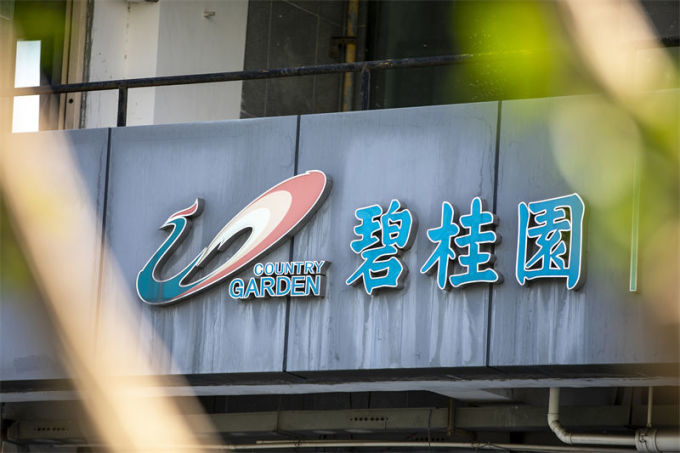
Country Garden logo in Shanghai on June 25, 2022. Photo: VCG
Concerns arise
The company’s shares continued to fall on August 8, closing at HK$1.13 (14 cents). Prices of onshore and offshore bonds issued by Country Garden also plunged while yields rose on growing concerns about the company’s payment risk.
One of the international bonds due in January 2024 traded at 22.8 cents on Aug. 8, down more than 70% from mid-June, while the price of one of the yuan-denominated bonds due in 2026 fell to 25.4 yuan, from a peak of 97.5 yuan in January.
According to a Country Garden spokesperson, the company is unable to make interest payments due to recent declines in sales and a lack of available capital.
Iris Chen, an analyst at Nomura, said the delay in interest payments indicated a worse-than-expected liquidity situation. Country Garden is due to make another bond payment next month. She predicted it would ask bondholders for more time to make payments to prevent defaults.
Guangdong Tengyue Construction Engineering, a subsidiary of Country Garden, managed to repay 800 million yuan of an onshore yuan-denominated medium-term bond on Aug. 7 after bondholders exercised their put option, the right to require the issuer to return the principal before the bond matures. But that was not enough to reassure investors in Country Garden’s bonds. Some yuan-denominated bonds fell more than 10% on Aug. 8, with some falling more than 20%.
“Negative cash flow every month and debt servicing. How sustainable is that?” asked an executive at a credit rating agency that has been closely following Country Garden. The developer will have little ability to deal with short-term debt pressures on its own, experts say. Even financial help from shareholders may not be enough.
Source of the crisis
Like many Chinese developers that boomed before regulators imposed restrictions on financing through the “three red lines” policy, Country Garden thrived on debt in recent years. For more than a decade until 2019, it easily raised funds each year to pay off maturing debt and fund its operations.
But the “three red lines” policy aimed at limiting the risk of overleveraged developers ended that financing model for Country Garden. The company’s cash flow from financing activities turned negative in 2020, leaving it reliant on sales proceeds.
The property market downturn that began in 2021 as China battled the Covid pandemic meant cash flow from new home sales also began to decline. Country Garden’s sales were particularly bad because the company focused on homes in third- and fourth-tier cities, where the market collapse was more severe than in first- and second-tier cities.
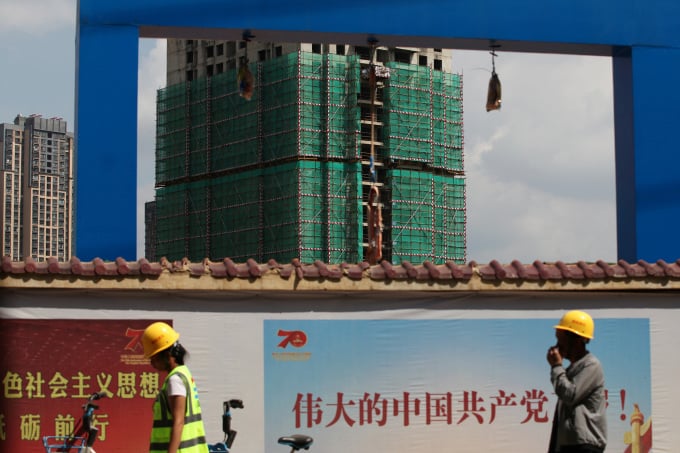
Workers walk past the Country Garden construction site in Kunming, Yunnan province, China on September 17, 2019. Photo : Reuters
The decline in home sales was worse in third- and fourth-tier cities, where overbuilding is rampant and oversupply is most severe. That means Country Garden will have a harder time boosting sales, raising concerns that the company will eventually default on its bonds.
Country Garden and its two major subsidiaries will have to repay more than 18.5 billion yuan ($2.5 billion) of onshore bonds maturing by the end of this year, including 7.3 billion yuan ($1 billion) due in September, according to Bloomberg statistics. No offshore bonds mature this year.
At the end of 2022, the real estate giant had total assets of 1.7 trillion yuan ($265 billion) and total liabilities of 1.4 trillion yuan ($219 billion), including 271.3 billion yuan ($95 billion) in interest-bearing debt. In addition, off-balance sheet debt could reach 200 billion yuan, according to a source with ties to the developer. If Country Garden defaults, the impact could be as severe as that of China Evergrande Group, the source said.
Evergrande, the world's most indebted property developer, disclosed in July that its total liabilities totaled 2.4 trillion yuan ($375 billion) as of December 2022, including 612.4 billion yuan ($95 billion) in loans. It is trying to restructure its debts, including $19 billion in offshore bonds.
How is Country Garden doing?
Country Garden said it will "actively consider taking various measures to ensure cash flow security, including but not limited to reducing operating expenses, accelerating debt collection arrangements, actively expanding financing channels, and managing and optimizing debt repayment arrangements." The company also said it will actively seek guidance and support from governments and regulators.
It is also trying to expand its financing channels, according to Caixin sources. However, earlier this month, the company denied reports that it planned to raise HK$2.34 billion ($300 million) through a share issue. However, sources said it was indeed considering an IPO, but the timing was not right and it was waiting for a better opportunity.
While Country Garden has not yet officially defaulted on its bonds, it can still borrow from banks and issue new bonds. But a financial industry source said it still would not be able to raise enough money to fill the gap left by falling home sales.
Country Garden has set up three task forces to boost sales. It has also cut back on land purchases and laid off workers to save costs. It has even cut costs on new project launch ceremonies, a source said.
Ultimately, the developer will have to try to extend the maturity of its debt or get guarantees from local governments to be able to issue more bonds. But with sales still sluggish, even issuing guaranteed bonds will not solve its financial problems, according to an expert from a Guangdong-based financial institution.
"Country Garden did everything a company could do, but things didn't go as planned," he said.
Phien An ( according to Caixin, WSJ )
Source link



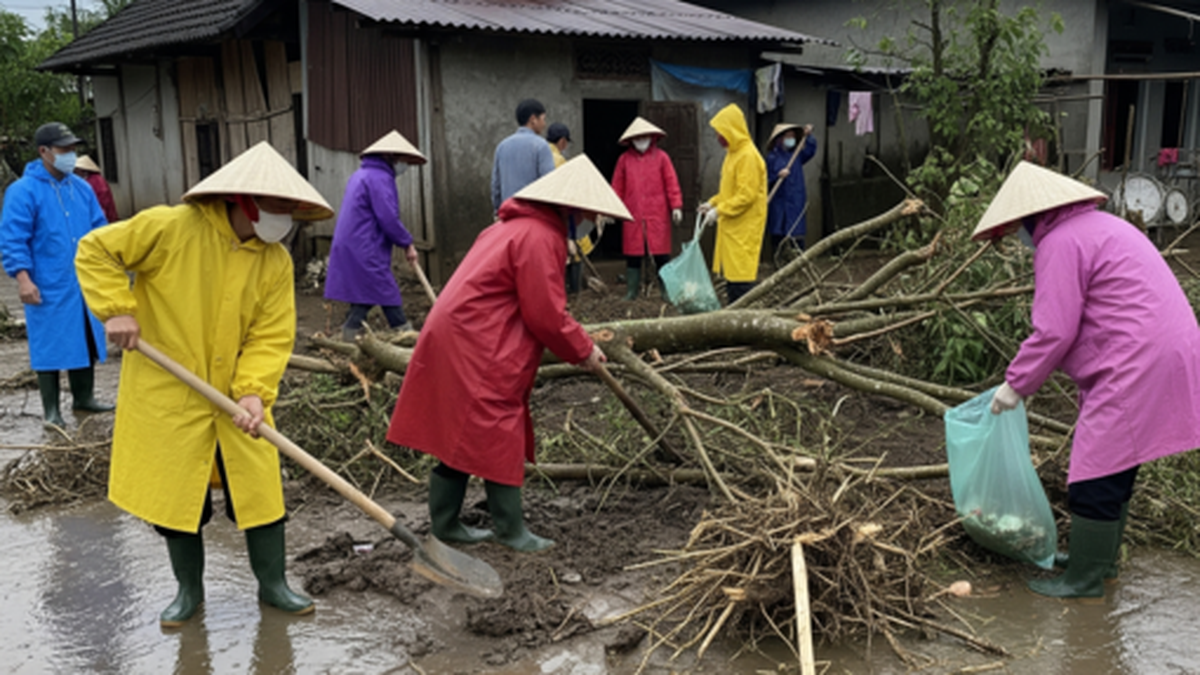


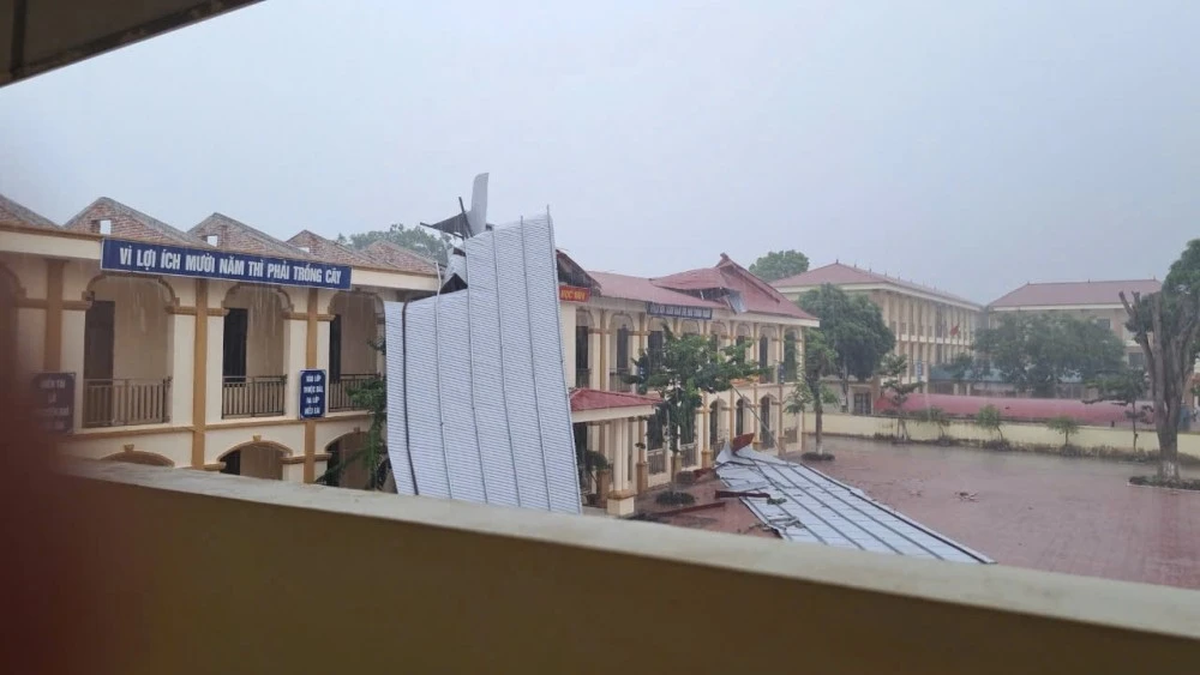



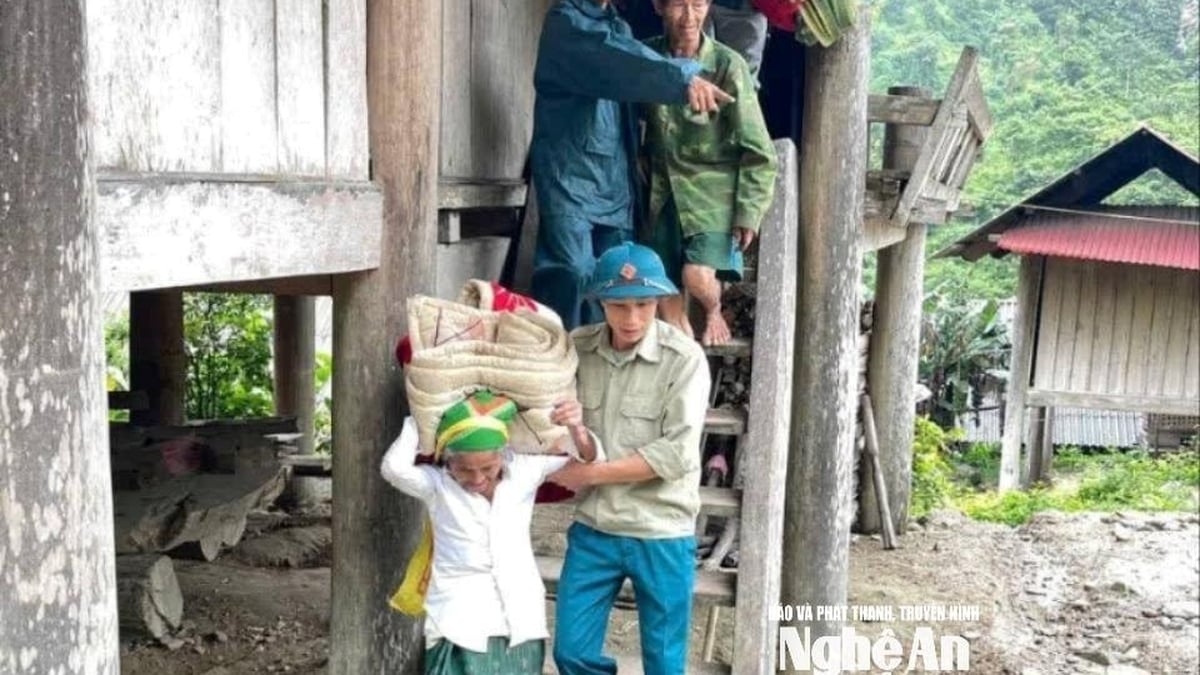














![[Photo] National Assembly Chairman Tran Thanh Man visits Vietnamese Heroic Mother Ta Thi Tran](https://vphoto.vietnam.vn/thumb/1200x675/vietnam/resource/IMAGE/2025/7/20/765c0bd057dd44ad83ab89fe0255b783)












































































Comment (0)